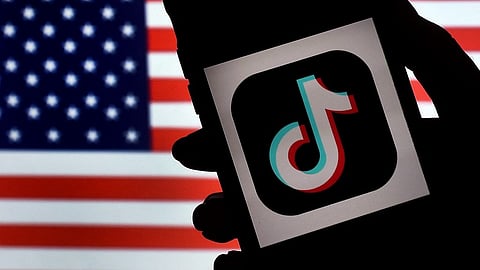
- NEWS
- the EDIT
- COMMENTARY
- BUSINESS
- LIFE
- SHOW
- ACTION
- GLOBAL GOALS
- SNAPS
- DYARYO TIRADA
- MORE

Chinese manufacturers are increasingly turning to TikTok to market products directly to US consumers, offering goods at prices significantly lower than traditional retail outlets.
This surge in direct-to-consumer sales comes as the US imposes a 145 percent tariff on Chinese imports, prompting some buyers to seek alternatives to circumvent these costs.
TikTok videos from Chinese sellers often feature warehouses stocked with items resembling high-end brands like Hermès, Chanel, and Nike, claiming these products are available at a fraction of retail prices.
For example, influencers have showcased handbags and activewear, asserting they are produced in China before being shipped to Europe for final assembly, and are now being sold directly to consumers.
However, experts caution that these claims are likely misleading, with many products being high-quality replicas or unauthorized goods, not authentic items from the luxury brands they resemble.
Brands such as Lululemon and Adidas have publicly stated they do not supply products through these Chinese manufacturers, urging consumers to be wary of potential counterfeits and misinformation.
The trend has raised concerns about intellectual property rights, consumer protection, and the potential undermining of established retail channels.
While these direct-from-China offers may appear enticing, consumers are advised to exercise caution and consider the risks associated with purchasing products from unverified sources, particularly when dealing with high-value items that may not meet expected standards of authenticity and quality.
